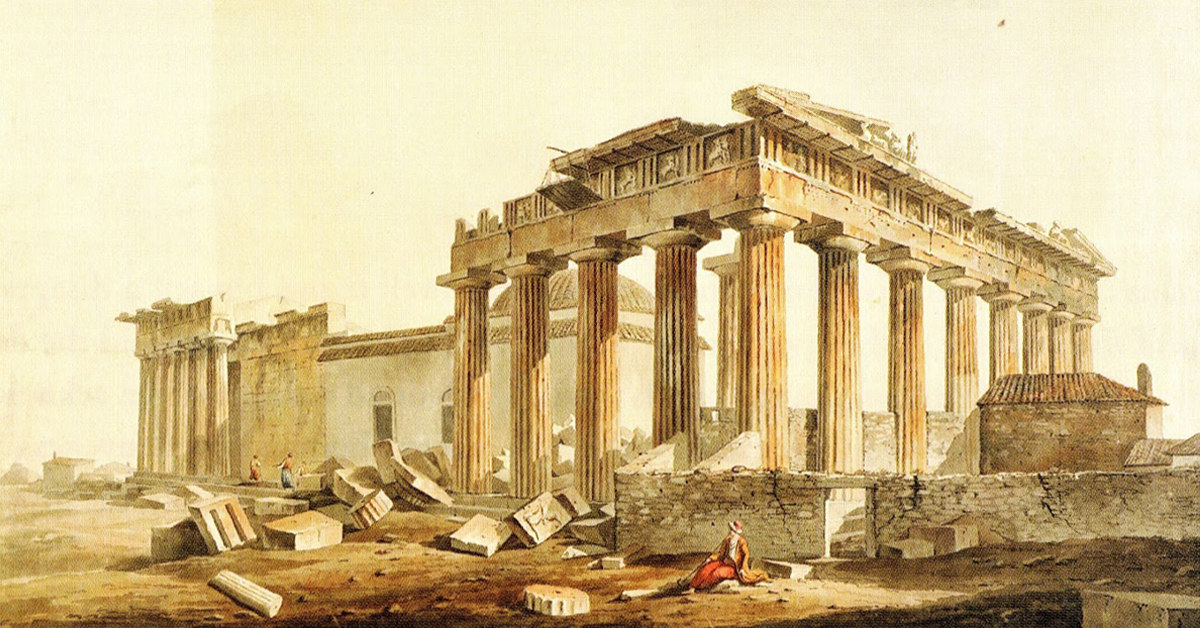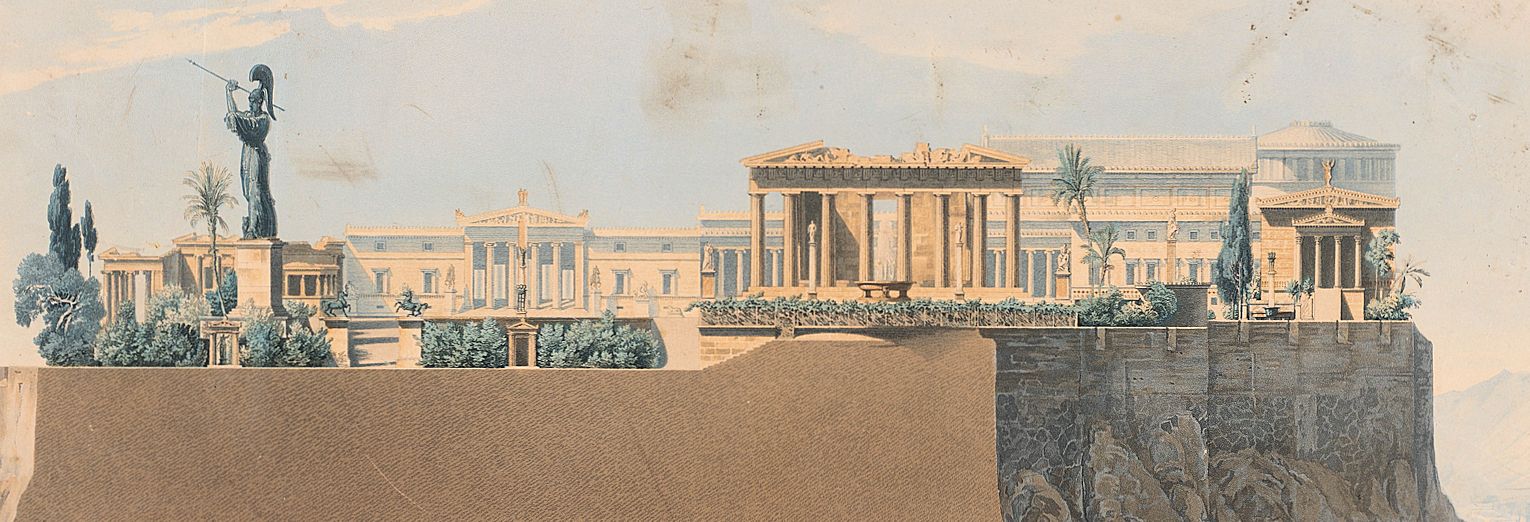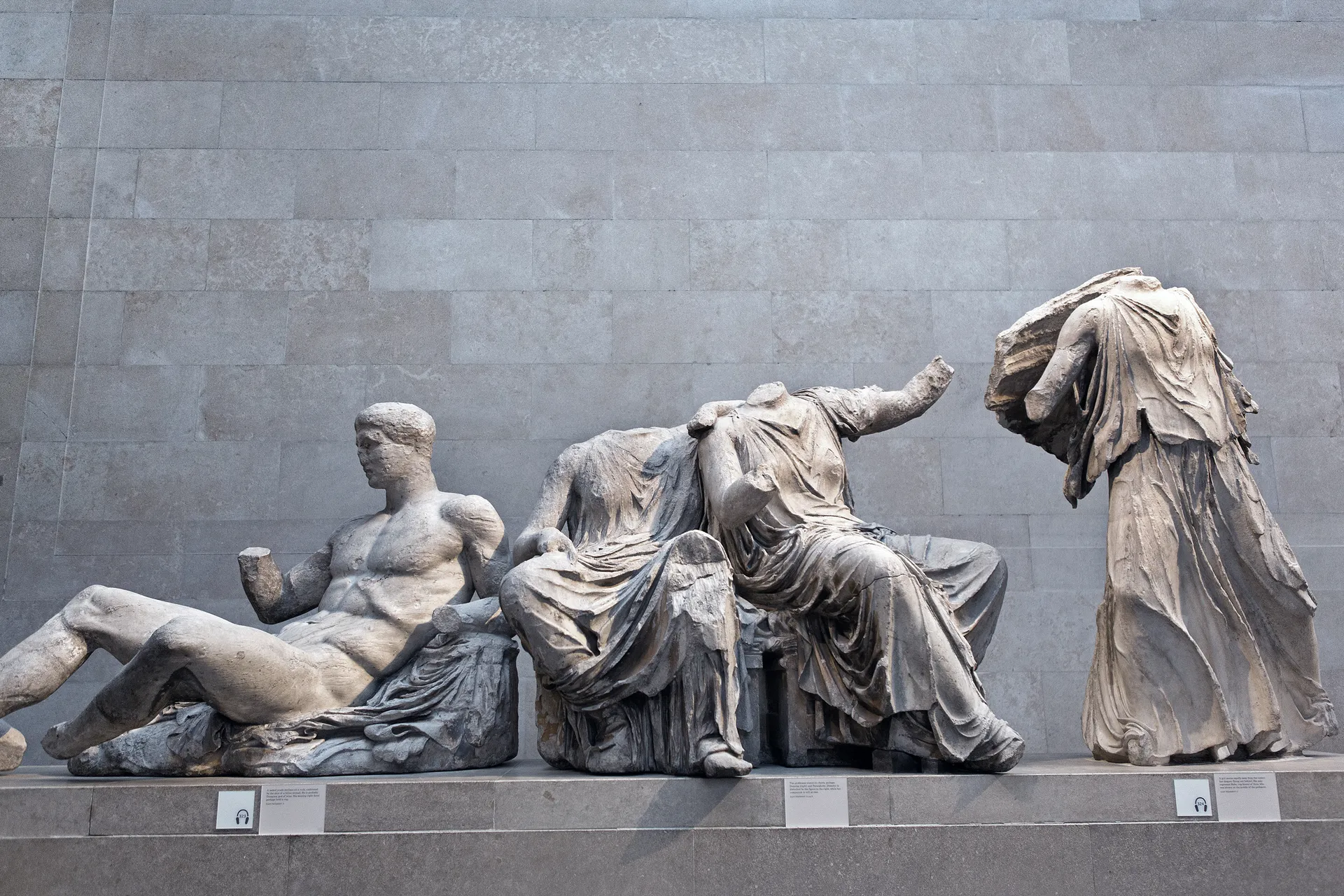By Dimitris Kouvaras,
Stone is most often seen as something hard, cold, monotone… After all, pretty much indifferent. However, that is not always true. If you happen to be following the latest news, you might have noticed, already, what I’m hinting at. The issue of the “Parthenon Marbles”, part of the sculptures from the famous temple’s pediments, metopes, and frieze that are currently at the British Museum, have risen to the limelight this year, owed to increased awareness-rising efforts in Britain, a shift in British public opinion on the issue and, not least, constant pressures and bargaining initiatives from the Greek government. Rishi Sunak’s decision not to meet with Greek Prime Minister Kyriakos Mitsotakis, perceived as provocative by some and as an evasion by others, became the cherry on top of the cake for those advocating for the artefacts’ return.
The issue must be familiar to most of you, so I won’t go into detail regarding the status of the Marbles and the arguments of each side, except for a short framing. These pieces of sculpture were violently removed from the Parthenon and shipped to England in the period 1801-1812 by Thomas Bruce, 7th Earl of Elgin, the British ambassador to the Sublime Porte at the time. The evaluation of the legitimacy of the act involves the complication that Greece was not an independent state at the time, so permission was sought from the Ottomans. However, there is no existing official documentation proving that such permission, sufficient to make an indisputable legal case, was indeed granted and validated, although it is claimed the Sultan assented to the operation. Contrasting the argument of conservation and protection put forward by Elgin himself with the harm caused to the artefacts upon extraction implies that this was a dubious act, based on an imperialist mindset. A more lay way of putting it, used by both Greek and British advocates for return, is that it was a steal.
What is interesting to ask, though, is why is this case of extraction so important for Greece. This brings us to the ideological framework on which, the Greek state was founded and acquired its national identity, its attitude to foreign interventions, and the political impact they make. Greece had forever been a crossroads between the East and the West, all the while differing from both. Different factors interplayed in the creation of Greek culture during the Ottoman period, which was quite far from European standards. It was an Eastern culture, incorporating Byzantine elements -Orthodoxy above all else- and Ottoman influences, prominent in aspects ranging from the internal ruling classes’ political mindset to people’s appearances. As for what is known as “classical civilisation”, it was pretty much unknown to the masses, being present only in the form of scattered vague ideas, names, words, and relics from a distant past that caused fear (in the form of scepticism) and awe at the same time. The reason is clear: this civilisation had been reinvented in Italy and then western Europe during the Renaissance, along with its Roman counterpart, at a time when Byzantine Greece had become subject to Ottoman conquest, involving isolation from what was going on in Europe.

However, it was known to the Greek avant-garde that fostered the revolution of 1821: intellectuals that forged an ideology for Greek nationalism and bourgeois that financed the scheme, both of which were acquainted with European lifestyle. In fact, it proved an excellent basis for structuring a new, modern Greek identity for the aspired state. The prevalence of the other possible cultural foundation, religion, was hindered not only by these people’s mindset, which focused on the more politically relevant and indeed admirable ideals of ancient Greek thought but also by the fact that the Patriarchate was an institution incorporated in the Ottoman administration framework and came to oppose the uprising, despite the support it found among members of the clergy. Yet, there was also another important factor. Promoting the values of classical civilisation would encourage European elites to accept and endorse what was initially seen as a messy threat to the geopolitical balance in the Eastern Mediterranean. The 19th century was, to a large extent, the century of neoclassicism after all. It worked perfectly, but, upon the creation of the new state, it required that modern Greeks become the embodiments of the culture of their glorious ancient “ancestors” that Europe, and their own intelligencia, expected.
This tendency in national identity-building was reinforced by the fact that Greece, after the Greek governor Kapodistrias’ assassination, came to be ruled by a Bavarian technocracy and dynasty that admired classical civilisation and disliked the Orthodox church. The Acropolis was put in the limelight from the beginning as Athens became the capital, taking over from Nafplio. There was even a plan to build Otto’s palace on top of the hill, as a means of testifying to the significance of these ancient remains. Already, from Kapodistrias’ time an archaeological museum was created, which testifies to the institutional validation of the importance attributed to antiquities. In this context, Greek intellectuals hailed the worth of ancient sculptures as potent symbols embodying the identity in the process of creation. Among them, the Parthenon Marbles stood out, as they originated from the country’s most iconic monument, and belonged to a whole cut in half due to their removal. The first claim against Elgin took place as early as 1842, by Alexandros Ragavis, president of the Archaeological Society. Many others followed in the 20th century, culminating in the efforts of the artist and culture minister Melina Merkouri, who became an iconic figure for her persistent advocacy. Since Greeks have now long internalised their national identity, these pieces of stone weigh with them a lot.

The “Elginians”, as they are called, have become not only a symbol of Greek civilisation and identity, but also a symbol of harmful foreign intervention, or exploitation. Greece came into being as a state dependent on the support of the European “great powers”, among which Britain was the most powerful, as well as the one that came to influence national foreign policy most -willingly or not. This interventionist model, not exclusively related to Britain, caused dissent within Greek society and created a mentality of insecurity, which can be linked to symptoms of an inferiority complex. The cause is that Greece was a small power in the periphery of Europe and a geopolitical hotspot, and as such it wasn’t granted the autonomy it wished. This mindset, although transformed based on the context -for example, the EU and the recent financial crisis- is still present today in the public conscience, creating a sense of unfair treatment or exploitation. The case of the “Parthenon Marbles” does justice to this narrative, since it was indeed an unjust act taking advantage of unequal relations.
At present, interest for them remains high, not only due to the above context but also due to increased awareness about the beauty and the value of these artefacts, as well as the brutality of their removal, derived through education and familiarisation with ancient art and archaeological procedures of conservation. Political interest is also very high, as a return would signal an impressive victory that could touch much of an otherwise politically polarised population. The future is unsure, yet, given the current developments, chances are that the reunification of the monuments’ pieces in Athens will take place at some point, sooner or later.
References
- Thomas Gallant, Modern Greece, 2016, Bloomsbury Academic.
- “How the Parthenon Lost its Marbles”, National Geographic. Available here
- “The Restitution of the Parthenon Marbles”, Hellenic Ministry of Culture. Available here




